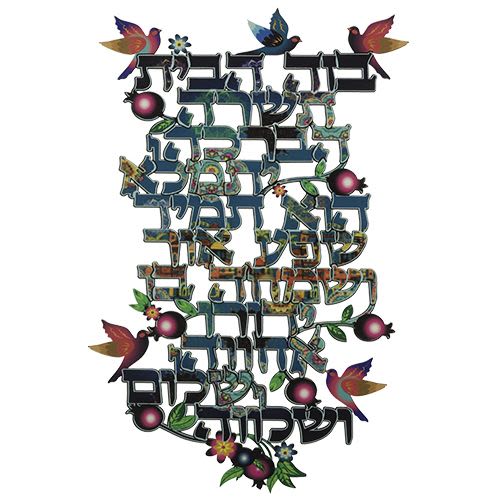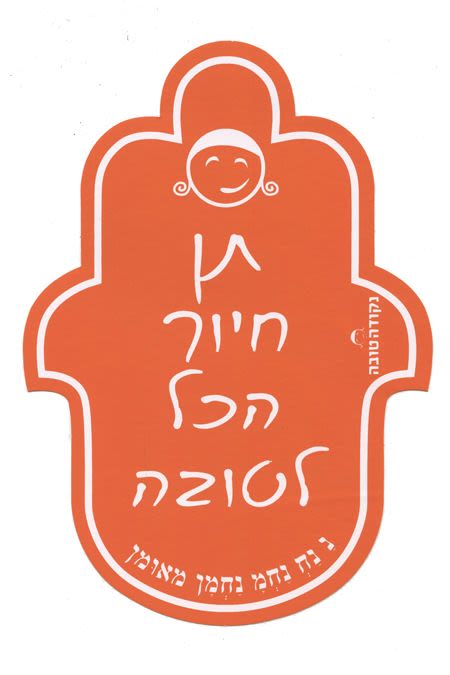
The Secret to Success
Sometimes, our service of Hashem is our simple acceptance of tribulations; at such a time, Hashem knows that we can't pray in a minyan or learn Torah like we normally do...

Translated by Rabbi Lazer Brody
How can an individual with emuna possibly consider himself a failure? The answer is simple – his emuna is incomplete. A person who believes in Hashem cannot possibly be a failure. Someone who believes that Hashem doesn't love him, Heaven forbid, is now a candidate for the loser-of-the-year award. By thinking that Hashem doesn't love him, his notion of emuna is sorely misguided in the first place. When we know the principles of emuna – namely, that everything comes from Hashem, that Hashem does everything for the very  best and that Hashem does everything with the specific purpose by way of His precision Divine Providence and guidance over our lives, then we can easily understand that Hashem loves every one of us. What's more, every single day, we make the blessing ohev amo Yisrael; would our sages order millions us to take Hashem's Holy Name in vain every single day, G-d forbid, by uttering the blessing that Hashem loves us if it weren't true? Of course, not!
best and that Hashem does everything with the specific purpose by way of His precision Divine Providence and guidance over our lives, then we can easily understand that Hashem loves every one of us. What's more, every single day, we make the blessing ohev amo Yisrael; would our sages order millions us to take Hashem's Holy Name in vain every single day, G-d forbid, by uttering the blessing that Hashem loves us if it weren't true? Of course, not!
So why, at any rate, do some “observant” people think that Hashem doesn't like them? Usually it's because they're undergoing some difficult tribulations in life, and they can't see or understand how Hashem can love them and torment them at the same time.
We all have tribulations, but we don't always know what's going on behind our neighbor's closed doors. Whether or not we see it, our neighbors are suffering too. Everyone has a soul correction to do, otherwise he or she wouldn't be down here in this world.
Oftentimes, our tribulations clip our wings. A person obviously can't walk to the synagogue to pray in a minyan if he's down with a sprained ankle. He certainly can't learn the Torah that he normally does if he's suffering from a splitting headache. His yetzer hara (evil inclination) tells him that the sprained ankle, the headache, or whatever tribulation he's suffering at the moment, or whatever else that is negatively affecting his Torah, mitzvoth, or service of Hashem is a clear sign that Hashem hates him, Heaven forbid!Otherwise, why would Hashem prevent him from doing a mitzva or learning Torah?
The yetzer hara's argument sounds convincing, but it's a lie. He's an arch-liar. People consider themselves failures as soon as they start listening to such nonsense. Once the yetzer hara has a person's ear, it will tell that person that he's the biggest loser on earth.
So why does Hashem give us tribulations? Why does Hashem give us a sick child that has to be taken to the doctor on Friday morning, just when we wanted to bake challas? I know a woman who once through a rolling pin at the wall in frustration when her child's school called her on Friday morning to tell her that he had come down with the flu and that she should come fetch him immediately; this all happened when she had just finished kneading her challa dough. She screamed, “Hashem! Why are you ruining my challas? These are in honor of Shabbat! The dough will be sour by the time I get back…”
The woman's husband was from France. He told his wife at the Shabbat table later that night that the sourdough challas were the most exquisite thing he ever tasted. He loved sourdough French bread, but he never dreamed of sourdough challas!
Hashem surely does everything for the best. But's let's still ask ourselves, what happens when the outcome doesn't appear to be a happy one? Why does Hashem sometimes make us miss praying in a minyan or lose Torah-learning time?
Tribulations don't limit our service of Hashem; they themselves are a way to serve Hashem. When Hashem gives us tribulations, our job is to accept them with joy and emuna, and even thank Hashem for them. This is not a matter of piety but of basic religious law (see Code of Jewish Law, Orach Chaim 222:3). Hashem wants us to serve him in any circumstance. Sometimes, our service of Hashem is our simple acceptance of tribulations; at such a time, Hashem knows that we can't pray in a minyan or learn Torah like we normally do. So, by strengthening our emuna and smiling despite the tribulations, we are not only correcting ourselves but doing exactly what Hashem wants us to do.
In light of all the above, we can now understand what the secret of success is. Failure, as we said earlier, is the result of the feeling that Hashem doesn't love us, Heaven forbid. On the other hand, as soon as a person feels with all his heart that Hashem loves him, and that the tribulations and everything else that he's challenged with are all for the very best, then he'll surely succeed, guaranteed! And yes, Hashem really loves each of us more than we'll ever imagine; that's why we all should be happy and successful!












Tell us what you think!
Thank you for your comment!
It will be published after approval by the Editor.